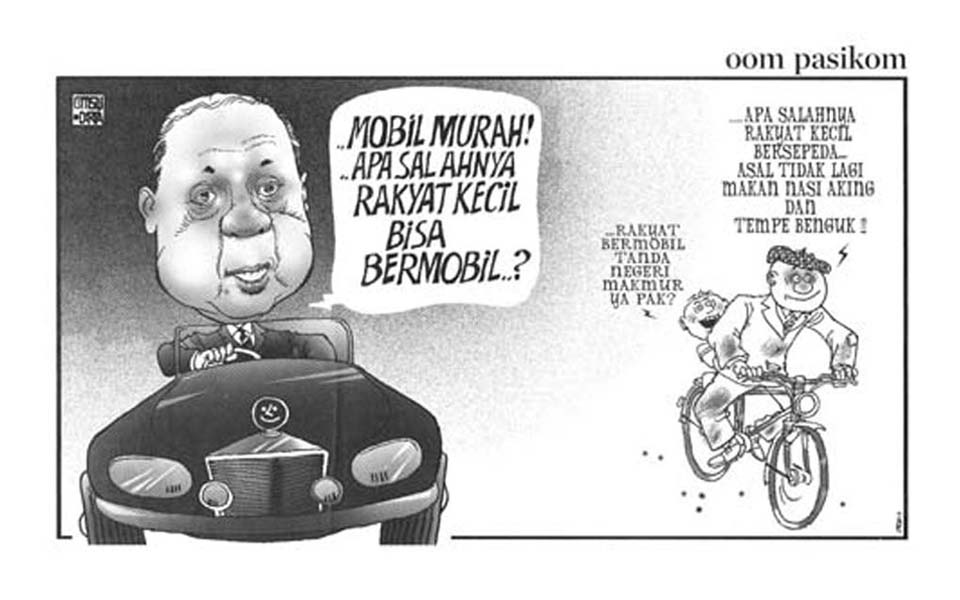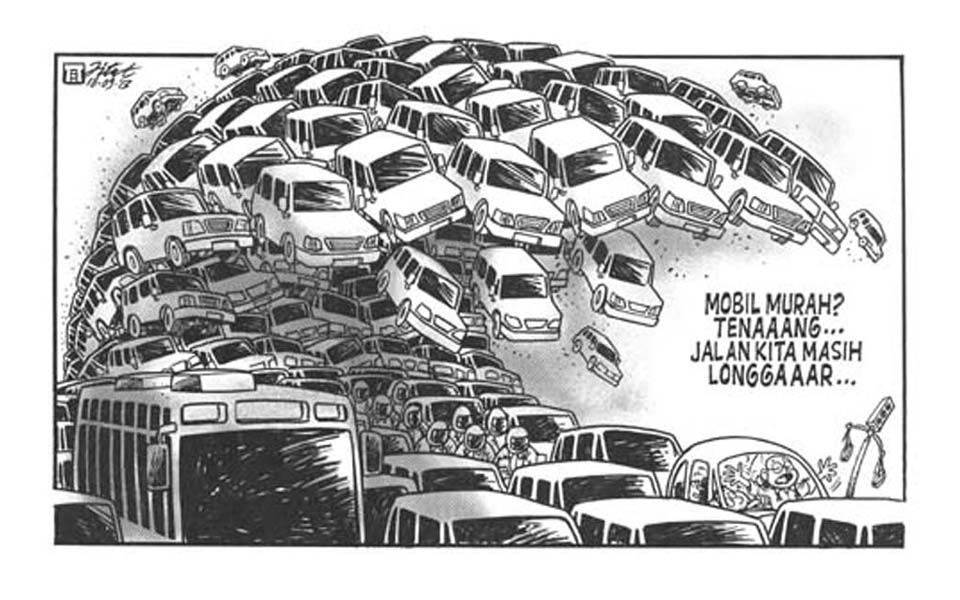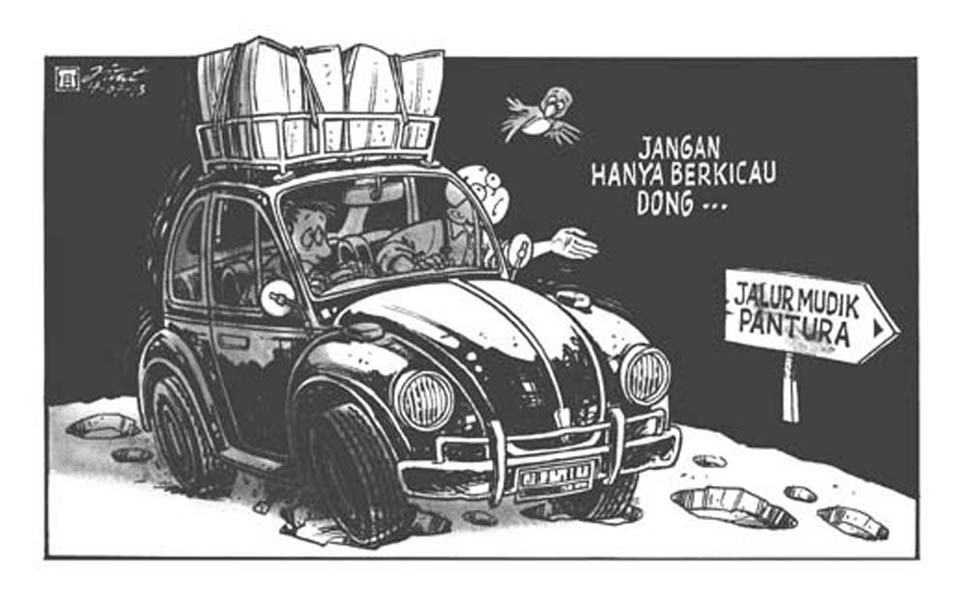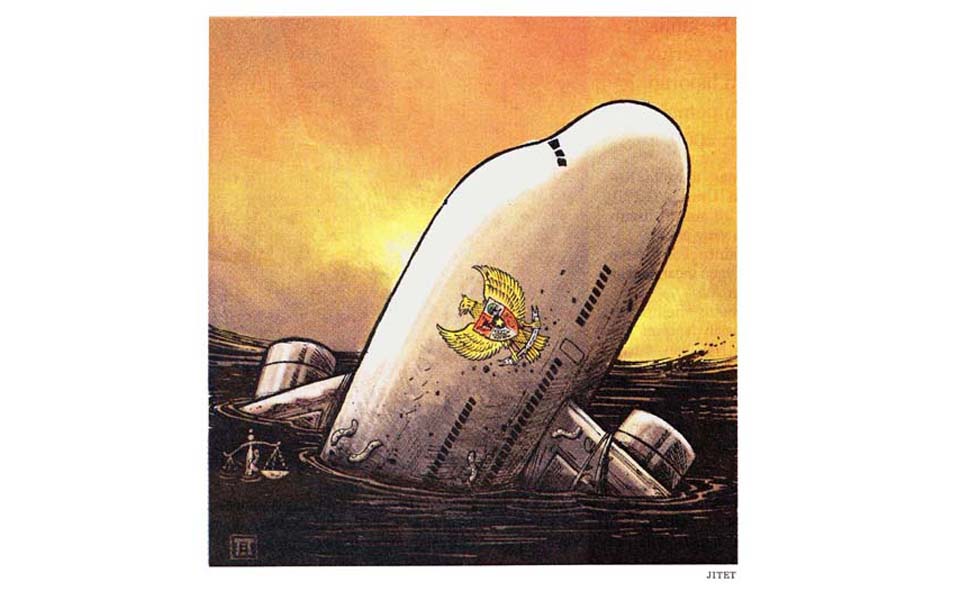
Writing on bonnet reads "Gas fuel project"
Having touted its fuel-to-gas energy conversion program as the answer to the country's growing dependency on fuel consumption, the government now appears to have abandoned the problem ridden project in favour of electric powered vehicles.
In early 2012 the government launched its fuel-to-gas conversion program in the hope of significantly reducing fuel subsidies by converting energy usage to gas (BBG), which is cheaper and abundantly available in Indonesia.
To implement the program, the government set aside 1.8 trillion rupiah from the 2012 state budget to build 33 gas fuel stations (SPBG) and to procure around 14,000 converter kits.
By the end of 2012 however the procurement and development of the SPBGs had still not been completed and government officials were busy pointing figures at each other over the delays.
Although some Transjakarta public buses and taxis were converted to gas, little has since been heard of the program.
Fast forward to 2021 and the government is now pushing electric vehicles (EV) as the new solution to ever growing fuel consumption and its associated environmental problems.
The government of President Joko "Jokowi" Widodo also sees the EV industry and battery manufacturing in particular as a key growth sector to allow the country to play to its strengths in terms of natural resources while moving it up into the value-added industries.
Two years ago, Indonesia banned exports of nickel, a crucial element in the second-generation lithium batteries, which are expected to power much of the electric vehicle revolution.
Construction of a 15.9 trillion Rupiah ($1.5 billion) EV battery factory has already begun in Karawang, West Java, and the government plans to have 31,859 EV charging stations and 67,000 swap stations for motorbike batteries by 2030, and has emphasised the "environmental friendliness" of the nascent industry.
But although moving away from petrol and diesel consumption will reduce vehicle pollution, Indonesia's reluctance to switch to renewable sources for electricity production mean most EV batteries will be charged using coal-fired power for decades to come.
This has prompted observers to question the degree to which the EV adoption will reduce emissions and warnings that the program may not be realistic.
Gojek, Indonesia's home-grown ride-hailing and delivery business which works off the back of 2 million motorbikes, is already planning to shift to electric vehicles. However it has yet to convince its drivers to come on board with many citing the high cost of vehicles and lack of charging stations as prohibitive.
Gojek's ride-hailing rival Grab, which began coaxing its food delivery drivers in Jakarta to use electric motorbikes last year, has also encountered obstacles with drivers complaining over the lack of charging and swap stations, limits on the distances they can travel and other performance issues. Some have already gone back to petrol-fueled bikes.














